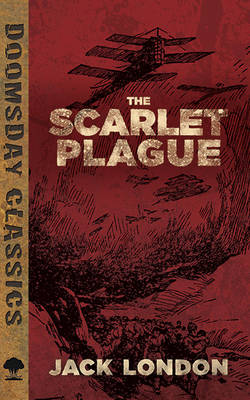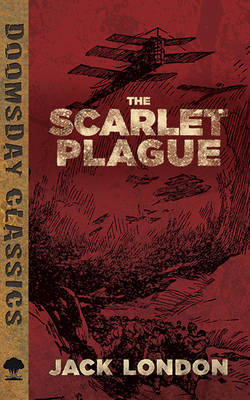
- Afhalen na 1 uur in een winkel met voorraad
- Gratis thuislevering in België vanaf € 30
- Ruim aanbod met 7 miljoen producten
- Afhalen na 1 uur in een winkel met voorraad
- Gratis thuislevering in België vanaf € 30
- Ruim aanbod met 7 miljoen producten
Zoeken
€ 10,45
+ 20 punten
Uitvoering
Omschrijving
Once the red rash appears, it is too late. The victims die within hours, their rapidly decomposing bodies spreading the disease in the dust. Art, science, and learning die with them while the few survivors degenerate into feral clans. This story takes place in 2073, sixty years after the great pandemic of 2013. A former professor of literature―now a dirty old man in goatskin―tells his incredulous and uncomprehending grandsons, "I am the last man who was alive in the days of the plague and who knows the wonders of that far-off time. We, who mastered the planet―its earth, and sea, and sky―and who were as very gods, now live in primitive savagery."
Jack London's The Scarlet Plague, which originally appeared in The London Magazine in 1912, ranks among the earliest works of post-apocalyptic fiction. This pioneering science-fiction novella, like many of the master storyteller's other tales, explores the thin line between civilization and barbarism. Recounted with humor, suspense, and pathos, London's harrowing vision of the future raises compelling questions about social class, knowledge, and human nature.
Jack London's The Scarlet Plague, which originally appeared in The London Magazine in 1912, ranks among the earliest works of post-apocalyptic fiction. This pioneering science-fiction novella, like many of the master storyteller's other tales, explores the thin line between civilization and barbarism. Recounted with humor, suspense, and pathos, London's harrowing vision of the future raises compelling questions about social class, knowledge, and human nature.
Specificaties
Betrokkenen
- Auteur(s):
- Uitgeverij:
Inhoud
- Aantal bladzijden:
- 192
- Taal:
- Engels
- Reeks:
Eigenschappen
- Productcode (EAN):
- 9780486802817
- Verschijningsdatum:
- 16/12/2015
- Uitvoering:
- Paperback
- Formaat:
- Trade paperback (VS)
- Afmetingen:
- 124 mm x 201 mm
- Gewicht:
- 204 g

Alleen bij Standaard Boekhandel
+ 20 punten op je klantenkaart van Standaard Boekhandel
Beoordelingen
We publiceren alleen reviews die voldoen aan de voorwaarden voor reviews. Bekijk onze voorwaarden voor reviews.











